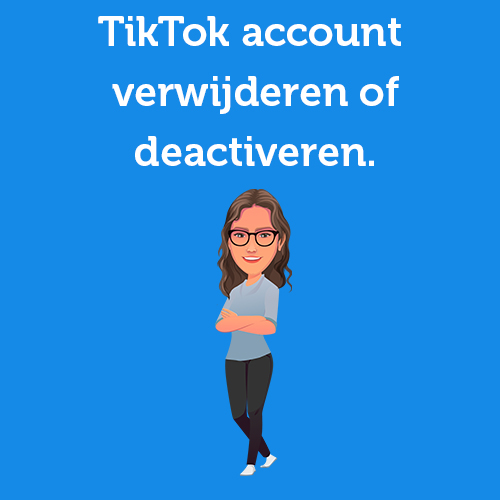Menu
Table of contents
Warm temperatures have slowly given way to cold and rainy weather.
The leaves turn brown and slowly fall from the tree.
When you walk past the houses you are intoxicated by the smell of stew meat.
In short, the fall of 2019 has begun.
And above all, that also means it's time to take a look at the state of social media channel market share in the Netherlands, Germany, Belgium and throughout Europe.
Which platforms lose what? And just who gains what?
Time to find out!
Netherlands
| Netherlands | June 2019 | September 2019 |
| 61,14% | 62,86% | |
| 22,45% | 21,50% | |
| 6,91% | 7,61% | |
| 4,35% | 3,35% | |
| Youtube | 2,86% | 2,43% |
Although the line that Facebook started mid-year has stagnated a bit, it still shows positive results: even in the past three months, the largest social medium managed to gain more market share.
This is mainly at the expense of the visual platforms in the Netherlands: Pinterest, Instagram and Youtube.
This in itself is quite remarkable, as the expectation was that people would use these very channels to distribute their vacation photos.
Instagram's relatively steep decline is particularly interesting.
Indeed, the increasingly popular medium showed a nice increase earlier, but a real breakthrough with advertisers as well has yet to happen.
Not surprisingly, since it is a relatively new channel where the potential for ads is largely unexplored.
Otherwise, we can say that fluctuations in social media market share are marginal: Youtube had a temporary upswing and is back in the red, Twitter is gaining a little bit and Pinterest is not delivering a little bit.
Nothing worrisome.
But what is the situation when we look at all of Europe?
Europe
| Europe | June 2019 | September 2019 |
| 76,30% | 80,33% | |
| 11,55% | 8,31% | |
| 4,66% | 5,44% | |
| 2,56% | 2,45% | |
| Youtube | 2,83% | 1,81% |
As in Q2, the trends in the Netherlands and across Europe are very similar.
We have the same winners and losers here, only the fluctuations are somewhat larger: Facebook wins relatively more than in the Netherlands, and Pinterest and Youtube also lose relatively more.
Instagram, on the other hand, is hardly losing anything, whereas in the Netherlands it had to make do with a significantly shrunk market share.
Interesting data! So let's soon see if the European countries individually can also provide comparable data.
Germany
| Germany | June 2019 | September 2019 |
| 65,41% | 70,94% | |
| 19,66% | 14,74% | |
| 4,10% | 5,75% | |
| 3,48% | 2,46% | |
| Youtube | 4,77% | 3,69% |
As you can see, the change in the 2019 social media market share in Germany is similar to that in the Netherlands (and Europe, for that matter).
Facebook and Twitter are also managing to appropriate a good deal more share at the expense of Pinterest, Instagram and Youtube among their eastern neighbors.
In the process, Pinterest failed to recover from a hefty loss in Q2.
Indeed, rather, the channel seems to be in free fall as it once again has to lose a relatively large amount of market share: as much as a quarter.
And where Instagram, after a long period of losses, managed to record another neat doubling in the first half of the year, it is now also dropping back quite nicely.
Just like Youtube, for that matter.
Twitter, as in the Netherlands and Europe, is showing a hefty increase, which is quite unusual because the short, fast-paced platform's social media market share usually rises or falls very little.
Let's watch that again especially!
Belgium
| Belgium | June 2019 | September 2019 |
| 63,77% | 67,42% | |
| 25,53% | 22,56% | |
| 3,71% | 4,11% | |
| 2,73% | 2,22% | |
| Youtube | 2,71% | 2,20% |
Whereas at the beginning of 2019 our neighbors to the south were mainly following their own trends, in Q3 of 2019 they seem to be going along with the overall European trends for a change.
Indeed, in Belgium too, Facebook makes a decent profit, Twitter can also add some social media market share and Pinterest, Youtube and Instagram have to make do with less than in Q2.
While this corresponds exactly to the trends in Europe, we can note that the changes are somewhat less significant than in Germany, for example.
For example, Pinterest, Youtube and Instagram are losing less in Belgium, and Twitter is posting smaller gains than in other European countries.
Facebook, on the other hand, is gaining about as much as it did in all of Europe.
Conclusion
Whereas in Q2 there were still considerable differences between them in social media market share, this time European countries seem to be united: Facebook and Twitter gain relatively much, with Pinterest, Youtube and Instagram losing.
Everywhere.
The difference, then, is in the magnitude of the changes.
In the Netherlands and Belgium, the increases and decreases are relatively small-scale, where in Germany and across Europe, people show their preference for certain social media channels a bit more clearly.
So will we remain so moderate here or will we eventually go along with the trends that have been set?
We are going to see it again in Q4!
Source: gs.statcounter.com











Written by: Daniel Kuipers
Daniel is the founder of Online Marketing Agency. He constantly scours the Internet for the latest gadgets and tactics and blogs about them in understandable language. Well, sometimes.